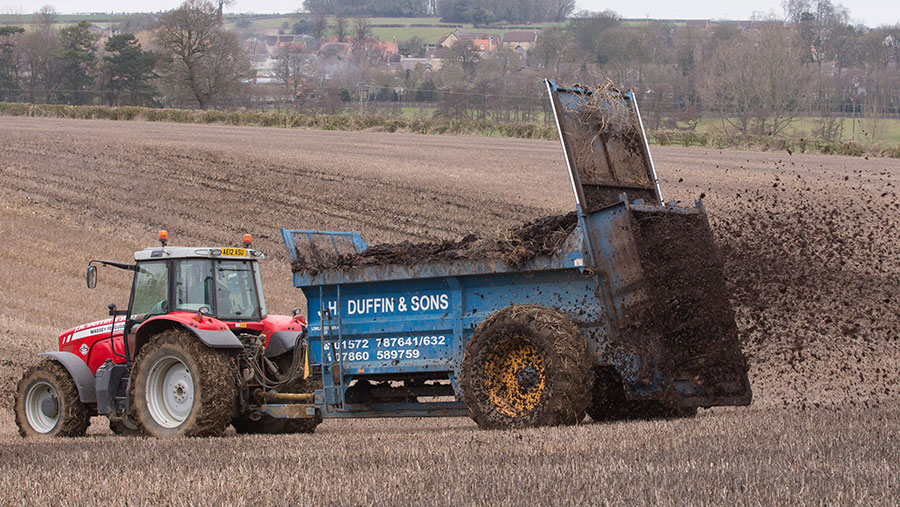Co-composting manure and phosphate could lift wheat yields
 © Tim Scrivener
© Tim Scrivener Arable growers in south west England have pushed up phosphate levels in wheat and rye grass by using co-composted rock phosphate and farmyard manure, which could lead to higher yields.
The group, belonging to the Innovative Farmers network, have been using this combination to see if it could improve soil biology, yields and phosphate availability.
The first results revealed that leaf phosphate concentration on samples of rye grass were 20% higher after being treated with co-composted rock phosphate and manure.
The results motivated the group to continue their research into both 2018 and 2019 harvests.
See also: Compost pushes up wheat yields on light land Berkshire farm
Despite positive indications, wheat plots proved to be statistically insignificant, and as a result, the plan is to repeat the experiment on a larger scale in the hope of enhanced results over an extended two-year period.
Optimistic
Innovative Farmers is part of the Duchy Future Farming Programme, a network funded by the Prince of Wales’ Charitable Foundation. Since it was established in 2012, more than 1,000 farmers have taken part in field labs.
One of the participating farmers and group coordinator Adrian Hares from Wiltshire said he is optimistic that extending their research should be advantageous.
“We’re really pleased with the results and we’re confident that we can repeat and improve in the next year of research,” he added.
John Hammond from the University of Reading, who is collaborating with the group said the results suggest that co-composting can increase phosphate availability to the crop, especially on alkaline soils.
“Co-composting for a minimum of four months and then ‘little and often’ appears to have the best results, so we can use this to inform our trials going forward,” said Dr Hammond.

